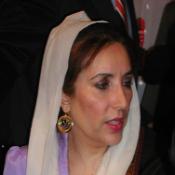Benazir Bhutto's presumed assassination was a disaster waiting to happen: She had predicted it herself. After years of exile, she was welcomed home on Oct. 18 with a suicide bomb attempt, and there was no reason to suppose that her many enemies would be content with that failure. The likely prospect of her winning the now-postponed Jan. 8 parliamentary elections and becoming the prime minister of a non-religious government threatened, in different ways, the current leadership, Islamic fundamentalists, the Taliban and al-Qaida, and her old nemesis, the army. Her assassins, therefore, tried to make sure of a kill by first shooting at the former prime minister, and then exploding a bomb. The official version that the cause of death was a head fracture is widely disbelieved, including by her Popular People's Party (PPP). But directly or indirectly, the perpetrators of her untimely end had achieved their purpose. If there is uncertainty about the exact cause of death, there is none about its impact: Bhutto's death leaves the nuclear-armed country's political future in dangerous turmoil. Her demise is also a setback for the Bush administration's efforts to have its cake and eat it in Pakistan -- shoring up President Pervez Musharraf and teaming him with Bhutto to counter the spread of Islamic fundamentalism. Judging from the administration's reaction last week, the White House has no viable Plan B.
Pakistan’s Prospects for Democracy: Can Things Get Much Worse?

